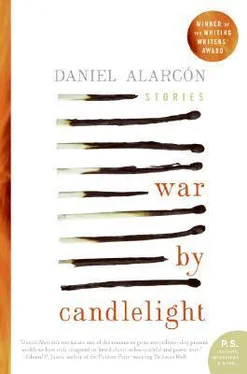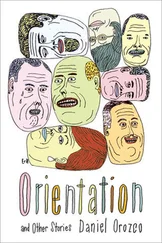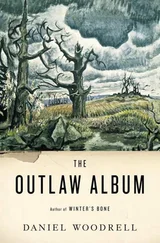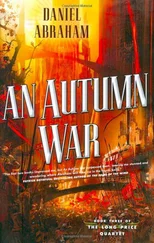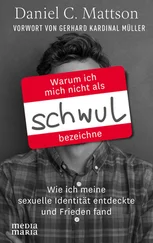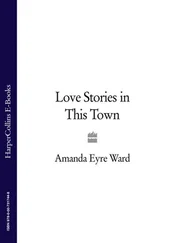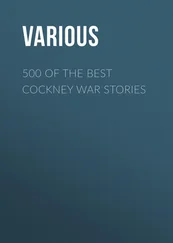I returned from Arequipa and made my decision. I left the university for the last time, only three months before I was to receive my degree in the fine arts. Instead I traveled to the countryside to study explosives with my compañeros.
If I were still a painter, I could show you some truths about this place: the children, cold and hungry, lining up each morning at the well, carrying water back to their families. Five kilometers. Seven kilometers. Nine. The endless bus rides across the city, when a young man in an ill-fitting suit steps aboard to recite poetry and sell Chiclets. “It’s not charity I am asking for,” he shouts over the rattle of a dying bus. “I am selling a poem to ease your commute!” The passengers look down and away.
In 1970, a town disappeared beneath the Andes. An earthquake. Then a landslide. Not a village but a town. Yungay. It was a Sunday afternoon; my father and I listened to the World Cup live from Mexico City, Peru playing Argentina to a respectable draw, when the room shook, vaguely. And then the news came slowly; filtered, like all things in Peru, from the provinces to Lima, and then back out again to all the far-flung corners of our make-believe nation. We were aware that something unspeakable had occurred, but could not name it just yet. The earth had spilled upon itself, an angry sea of mud and rock, drowning thousands. Only some of the children were spared. A traveling circus had set up camp at the higher end of the valley. There were clowns in colorful hats and children laughing as their parents were buried.
In Arequipa, to the south, we had scarcely felt the earthquake at all: a vase slipping off a windowsill, a picture hanging askew, a dog barking.
If I were still a painter, I would set up a canvas on that barren spot where that town once stood, select my truest colors, and show you that life can disappear just like that. “And what is this, Pintor?” you might ask, pointing to the ochre, purple, orange, and gray.
Ten thousand graves; can’t you see them?
When I was a painter, I would stroll through the city, eyes wide open. On my way home each afternoon, I passed the roadside mechanics standing along the avenue at the end of a day’s work. Stained oily black from head to toe, they were the fiercest angels, the city’s living dead. Lima was full of those worn down by living. I rushed home, reeling, sketching on napkins, papers, on my skin, all that I had seen so it would not go unrecorded. Everything meant something, hinted at an as-yet-unasked, un-dreamed-of question. There were no answers that convinced me. I painted toward those questions — a cinder block resting in an abandoned parking lot, a dented fender reflecting the streets — sometimes for a day or two or even three, catnapping in the corner of my room just as my landlady Doña Alejandra had once. I awoke well before dawn, awash in the metallic odors of paint and sweat and hunger, and I forgot my body almost completely.
I have found that sensation a few times since: lost in the tangle of vines, in the jungles of northern Peru, running from an ambush; setting a bomb in the bitter cold of the sierra beneath a concrete bridge. But like a drug, each time the adrenaline rush is less powerful, and each culminating boom means less and less.
I have not painted since that night of the dogs. Not a stroke of black or red, not animal or canvas.
And I will not paint again.
Only the walls of my cell — if they catch me — a shade recalling sky, so my dreary last days can be spent in grace.
What I recall of him: a thin and shadowy mustache and the gun. I remember the diminutive length of the barrel and its otherworldly gleam, backlit as it was by his flashlight. There was something drunken about the way he swayed, the unsteady manner in which he held his pistol, arm outstretched and wavering. I imagine he stumbled upon me after a few drinks with friends. “Hey, you there!” he called. “Stop! Police!” Picture this: a man in this light shouting, gun held unsteadily, as if by a puppeteer. I looked back toward him and said meekly, drawing on an innocence I could not have possessed, “Yes?”
“The hell are you doing?” he shouted from behind the blinding light.
I scoured my mind for explanations but found none. The truth sounded implausible; especially the truth. The silence was punctuated by the dog’s pained cry. “This mutt bit my little brother,” I said.
He kept the barrel trained on me, skeptical, but stepped closer. “Is he rabid?”
“I’m not sure, Officer.”
Bent over the dog, he examined its dying body. Blood ran in thin streams through the grass, fanning out toward the edge of the street. It reminded me of the maps I studied in grade school, of the Amazon Basin with its web of crooked tributaries flowing to the sea.
“Where’s your brother? Has he been seen by a doctor?”
I nodded. “He’s with my mother at home,” I said and waved my arm to indicate a place not far away in no particular direction. There was a glint of kindness in him, though I knew he didn’t exactly believe me. I was not as accustomed to lying as you might think. I was afraid that he might see through me. So I continued. I told of my brother, the terrible bite, the awful scream I had heard, the red, fleshy face of the wound. His innocence, his shining eyes, his smile, his grace. I gave my brother all the qualities I lacked, made him beautiful and funny, as perfect as the blond puppets they use to sell soap on television. I was sweating, my heart racing, telling him of the jokes he told, the grades he got. A smart one, my brother! And then I gave him a name: “Manuel, but we call him Manolo, Manolito,” I said, and the officer, gun in hand, softened.
“That’s my name.”
I looked up, not quite sure what he meant.
“I’m Manolo too,” he said delicately, almost laughing. I chuckled nervously. The dog whimpered again. We faced each other in the still of the broad avenue and shared a smile.
The officer put his gun in the holster and moved to shake my hand. I wiped the blade of my knife on my thigh and put it down. We shook hands firmly, like men. “Manuel Carrión,” he said.
And I said a name as well, though of course not mine and not Pintor.
He was a cholo like me, I knew it by the way he spoke. His father worked with his hands, as surely as he had cousins or brothers or friends who worked with their fists. He said he was pleased to meet me. “But what are you doing exactly? Killing this mutt?” he asked. “What will that accomplish?”
“I chased it down to see if it was rabid. The little bitch struggled with me. I guess I got carried away.”
Carrión nodded and leaned over the dog once again. With his nightstick he poked it in its belly, eliciting a muted, pathetic yelp. He peered into its eyes for a particular shade of yellow and into its gaping mouth for the frothy telltale saliva. “No rabies. I think Manolito is going to be fine.”
I was relieved for a brother I didn’t have, for a bite that never was. My heart swelled. I imagined Manolito and his long, healthy days, running, playing among friends, his wound healed with not even a scar. I loved my fictitious brother.
Carrión was drunk and kind. If things had gone differently that black morning this episode might have become one of his favorite stories, when asked by a friend or cousin over a drink, “Hey, cholo , what’s it like out there?” Compa , let me tell you about the night I helped a man kill a dog. No, that sounds too banal. Hombre , one time, I came upon a man decapitating a street mutt…. Who knows how he would tell the story now? Or if he would tell it at all?
“I used to be just like your Manolito,” he was saying, “always getting into something. I liked to fight the big guys, but I was small. Always coming home with a broken this or a bruised that.” Carrión spoke warmly now. “Are you taking him anywhere? The mutt, I mean.”
Читать дальше
